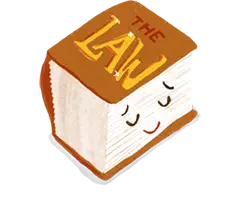Topic
Conservation
This page contains different parts of laws about Conservation, within the topic of Environment and resources.

Important laws about Conservation
Conservation Act 1987
The name and start date of the Conservation Act 1987 law
1: Short Title and commencement
Conservation Act 1987
What special words mean in the Conservation Act 1987
2: Interpretation
Conservation Act 1987
Following the Treaty of Waitangi principles in New Zealand's conservation law
4: Act to give effect to Treaty of Waitangi
Conservation Act 1987
The government team that helps protect New Zealand's environment and natural resources.
5: Department of Conservation
Conservation Act 1987
The Department of Conservation's jobs are to protect and care for New Zealand's special places and things.
6: Functions of Department
Conservation Act 1987
New Zealand creates a group to help protect the environment.
6A: New Zealand Conservation Authority established
Conservation Act 1987
What the New Zealand Conservation Authority does to help protect nature in New Zealand.
6B: Functions of Authority
Conservation Act 1987
What the New Zealand Conservation Authority is allowed to do to carry out its job.
6C: Powers of Authority
Conservation Act 1987
Who can be on the New Zealand Conservation Authority team
6D: Membership
Conservation Act 1987
The Conservation Authority's yearly report to the Minister about its work and decisions.
6E: Annual report
More laws about Conservation
About this project
What is this project?
This project is an experiment to take difficult language, and make it easier to read and understand for everyone.
How do we do this?
What's our process for taking the law and turning it into plain language?
Why is the law written like it is?
Laws are often hard to read. They use a lot of words and language we don't usually use when we talk.
Should we use AI for this?
What are the good and bad sides of using AI?
Is this information the actual law?
We hope that this information will help people understand New Zealand laws. But we think that it's important you talk to someone who understands the law well if you have questions or are worried about something.
You can talk to Community Law or Citizen's Advice Bureau about your rights.
Remember that AI can make mistakes, and just reading the law isn't enough to understand how it could be used in court.
You can talk to Community Law or Citizen's Advice Bureau about your rights.
Remember that AI can make mistakes, and just reading the law isn't enough to understand how it could be used in court.




